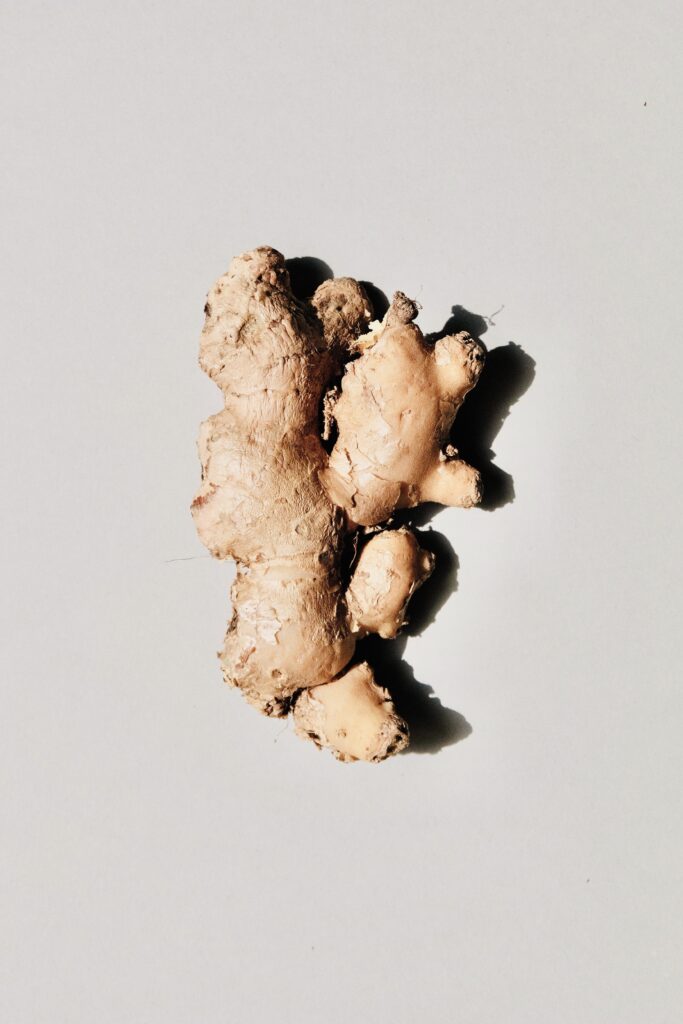Ginger, a culinary and medicinal tradition for centuries, has been esteemed for its wide range of benefits. With over 100 active compounds, ginger has been used to reduce inflammation, protect against heart disease, and improve blood sugar control. For pregnant women, ginger supplements have proven effective in alleviating nausea. Additionally, ginger may support weight loss efforts by enhancing fat burning and reducing appetite. Available in various forms such as capsules, powders, and teas, ginger is generally safe for consumption, but high doses may cause digestive symptoms. It is crucial to consult with healthcare providers before taking ginger supplements, as it may interact with certain medications. When choosing a ginger supplement, it is recommended to opt for trusted brands that undergo third-party testing for purity and potency.

Culinary Uses of Ginger
Ginger, a versatile and aromatic spice, has been used in culinary applications for thousands of years. Its unique flavor profile and numerous health benefits make it a popular ingredient in various cuisines around the world.
Traditional Culinary Applications
In traditional culinary practices, ginger is widely used for its ability to add depth and flavor to dishes. Its warm and slightly spicy taste is often found in dishes such as stir-fries, curries, and soups. Additionally, ginger is frequently used as a spice in baking, adding a delicious and unique flavor to cakes, cookies, and breads.
Ginger in Asian Cuisine
Ginger is a staple ingredient in Asian cuisine, where it is known for its aromatic properties and ability to enhance the flavors of other ingredients. In Chinese cuisine, ginger is often used in marinades and sauces, adding a zingy and refreshing taste to meat and vegetable dishes. In Japanese cuisine, pickled ginger, known as gari, is commonly served alongside sushi to cleanse the palate between bites.
Ginger in Western Cuisine
In Western cuisine, ginger is most commonly used in desserts and beverages. Gingerbread, a classic holiday treat, features ginger as the star ingredient, lending a spicy and comforting flavor to the soft and fragrant cake. Ginger ale and ginger beer are popular beverages that showcase the refreshing and invigorating taste of ginger.
Popular Ginger Recipes
There are countless recipes that highlight the culinary versatility of ginger. Some popular dishes include ginger chicken stir-fry, ginger garlic shrimp, gingerbread cookies, and ginger-turmeric smoothies. The options are endless, and the addition of ginger can elevate any dish with its unique and enticing flavor.
Medicinal Uses of Ginger
Apart from its culinary applications, ginger has also been utilized for its medicinal properties for centuries. The active compounds found in ginger have shown various health benefits and have been used to treat a wide range of ailments.
Traditional Medicinal Uses
In traditional medicine, ginger has been used to alleviate digestive issues such as nausea, indigestion, and bloating. Its warming properties are believed to soothe the stomach and promote healthy digestion. Additionally, ginger has been used as a natural remedy for headaches, colds, and menstrual cramps.
Modern Medicinal Applications
In modern medicine, ginger is recognized for its anti-inflammatory and antioxidant effects. Research suggests that ginger may help reduce inflammation and cellular damage in the body, which can contribute to chronic diseases such as arthritis and cancer. Furthermore, ginger has shown promising effects on cardiovascular health, blood sugar control, and weight management.
Ginger and Digestive Health
Ginger is widely known for its ability to ease digestive discomfort. It can help relieve symptoms of indigestion, such as bloating, gas, and stomach cramps. Ginger may also enhance the absorption of nutrients and promote a healthy gut microbiota, leading to improved digestion and overall gut health.
Ginger and Heart Health
Studies have found that ginger may have a positive impact on heart health. Its anti-inflammatory properties may help reduce markers of inflammation in the body, which are associated with an increased risk of heart disease. Additionally, ginger has been shown to have blood-thinning effects, promoting better circulation and reducing the risk of blood clots.
Ginger and Diabetes
Research suggests that ginger may have beneficial effects on blood sugar control and insulin sensitivity. By improving insulin function and reducing insulin resistance, ginger may help regulate blood sugar levels and lower the risk of developing type 2 diabetes. However, more studies are needed to fully understand the mechanisms behind this effect.
Ginger and Nausea
Ginger has long been used as a natural remedy for nausea and vomiting, particularly in pregnant women experiencing morning sickness. Its anti-nausea effects are believed to be attributed to its ability to block certain signals in the brain that trigger nausea. Ginger supplements or ginger tea can be effective in reducing nausea and promoting overall well-being.
Ginger and Weight Loss
Ginger may also play a role in weight management. Research suggests that ginger may enhance fat burning and reduce appetite, potentially leading to weight loss. By increasing thermogenesis (the production of heat in the body), ginger can boost metabolism and promote the breakdown of stored fat.

Health Benefits of Ginger
The numerous health benefits of ginger can be attributed to its rich composition of bioactive compounds. These compounds contribute to its anti-inflammatory, antioxidant, and cardiovascular-protective effects, among others.
Rich in Bioactive Compounds
Ginger contains over 100 active compounds, including gingerol, shogaol, and zingerone, which provide the spice with its characteristic aroma and taste. These compounds have been shown to have various health benefits, such as reducing inflammation, fighting oxidative stress, and improving overall well-being.
Anti-Inflammatory Properties
Inflammation is a natural response that helps the body fight against infections and repair damaged tissues. However, chronic inflammation can contribute to the development of various diseases, including heart disease, arthritis, and cancer. Ginger’s bioactive compounds have anti-inflammatory effects, which can help reduce chronic inflammation and alleviate associated symptoms.
Antioxidant Effects
Free radicals are unstable molecules that can damage cells and contribute to various diseases, including cancer and aging. Ginger’s antioxidant properties help neutralize these harmful free radicals and protect cells from oxidative damage. This antioxidant activity may play a role in preventing chronic diseases and promoting overall health.
Cardiovascular Protection
Heart disease is a leading cause of death worldwide, and lifestyle factors can significantly impact heart health. Ginger’s anti-inflammatory and antioxidant effects may help reduce the risk of heart disease by protecting against oxidative stress, reducing inflammation, and improving blood lipid profiles. Regular consumption of ginger can contribute to overall cardiovascular protection.
Blood Sugar Regulation
Maintaining stable blood sugar levels is crucial for overall health and diabetes prevention. Ginger has shown promising effects on blood sugar control, insulin sensitivity, and insulin resistance, all of which are factors that contribute to the development and management of type 2 diabetes. Including ginger in the diet or taking ginger supplements may help regulate blood sugar levels and reduce the risk of diabetes-related complications.
Nausea Relief
Ginger’s ability to alleviate nausea and vomiting has been extensively studied. Whether it’s due to motion sickness, pregnancy-related morning sickness, or chemotherapy-induced nausea, ginger can provide relief. Ginger supplements, ginger tea, or even ginger candies can effectively reduce nausea and improve overall quality of life.
Weight Management
Maintaining a healthy weight is essential for overall well-being. Ginger’s potential role in weight management can be attributed to its ability to enhance fat burning and reduce appetite. By boosting metabolism and reducing feelings of hunger, ginger may support weight loss efforts when combined with a balanced diet and regular exercise.
Different Forms of Ginger
Ginger is available in various forms, allowing for flexibility in its culinary and medicinal use. The different forms of ginger include fresh ginger, dried ginger, ginger powder, ginger extract, and ginger supplements.
Fresh Ginger
Fresh ginger, also known as ginger root, is the most common form of ginger used in cooking. Its aromatic and pungent flavor is best when freshly grated or minced. Fresh ginger can be added to savory dishes, desserts, and beverages to add a hint of spiciness and a burst of flavor. It can also be brewed into a soothing ginger tea and enjoyed hot or cold.
Dried Ginger
Dried ginger is made by drying fresh ginger and grinding it into a powder. It has a concentrated flavor and can be used as a spice in a variety of dishes. Dried ginger is commonly used in baking, where its warmth and spiciness enhance the flavor of cakes, cookies, and breads. It can also be added to spice blends, marinades, and sauces.
Ginger Powder
Ginger powder is a versatile form of ginger that can be easily incorporated into a wide range of recipes. It is made by grinding dried ginger into a fine powder. Ginger powder is commonly used in spice mixes, curry powders, and gingerbread recipes. It can also be added to smoothies, soups, and beverages for a convenient and consistent ginger flavor.
Ginger Extract
Ginger extract is a highly concentrated form of ginger that is obtained by extracting the active compounds from the root. It is typically available in liquid or capsule form and is commonly used for medicinal purposes. Ginger extract can provide a more potent dose of ginger’s health-promoting compounds, making it an effective option for those seeking targeted health benefits.
Ginger Supplements
Ginger supplements are available in various forms, including capsules, tablets, and powders. They offer a convenient and standardized way to incorporate ginger into a daily routine. Ginger supplements are commonly used to support digestive health, reduce inflammation, relieve nausea, and promote overall well-being. It is important to choose high-quality supplements from trusted brands to ensure purity and potency.

Recommended Doses of Ginger
The recommended dose of ginger varies depending on the intended purpose and form of ginger being used. It is important to follow the recommended guidelines and consult with a healthcare professional before starting any new supplement regimen.
Dose for Culinary Purposes
For culinary purposes, there is no specific daily recommended dose of ginger. The amount of ginger used in recipes may vary based on personal preference and taste. However, starting with small amounts and gradually increasing can help achieve the desired flavor profile without overpowering the dish.
Dose for Medicinal Purposes
When using ginger for medicinal purposes, the recommended dose can vary depending on the specific condition being treated. For digestive issues and nausea relief, a daily dose of 1 to 3 grams of ginger is commonly recommended. However, higher doses may be required for more severe symptoms or specific health conditions. It is important to consult with a healthcare professional to determine the appropriate dosage for individual needs.
Safety and Side Effects of Ginger
Ginger is generally considered safe for most individuals, but high doses may cause digestive symptoms or affect blood clotting. It is important to be aware of potential side effects and precautions when using ginger.
Overview of Safety
Ginger is well-tolerated by most people when consumed in moderate amounts. However, individuals with certain health conditions, such as gallstone disease, may need to avoid or restrict their intake of ginger. Additionally, pregnant women should consult with their healthcare provider before using ginger supplements, as high doses may have the potential to induce uterine contractions.
Digestive Symptoms
In some cases, ginger may cause digestive symptoms such as heartburn, gas, and stomach discomfort. These side effects are generally mild and temporary. Starting with a low dose and gradually increasing can help minimize the risk of experiencing digestive symptoms.
Blood Clotting
Ginger has blood-thinning properties, which may interfere with certain medications or increase the risk of bleeding in individuals with bleeding disorders. It is important to consult with a healthcare professional before taking ginger supplements if you are taking blood-thinning medications or have a bleeding disorder.
Drug Interactions
Ginger may interact with certain medications and affect their effectiveness or increase the risk of side effects. Individuals taking anticoagulant medications, diabetes medications, or blood pressure medications should consult with their healthcare provider before using ginger supplements to ensure safe and effective use.
Choosing the Right Ginger Supplement
When selecting a ginger supplement, it is important to choose a trusted brand and ensure the product has undergone third-party testing for purity and potency.
Importance of Trusted Brands
Trusted brands prioritize quality and adhere to strict manufacturing standards. These brands often conduct rigorous testing to ensure their products meet the highest quality and safety standards.
Third-Party Testing
Third-party testing is an essential aspect of ensuring the quality and purity of ginger supplements. Independent laboratories evaluate the composition, purity, and potency of the supplements, providing consumers with confidence in the product they are purchasing.
Purity and Potency
Purity and potency are crucial factors to consider when choosing a ginger supplement. Ensuring that the supplement is free from contaminants and contains the specified amount of active compounds guarantees its safety and effectiveness.
Conclusion
Ginger has been valued for its culinary and medicinal uses for thousands of years. Its unique flavor and numerous health benefits make it a versatile and valuable ingredient in various cuisines worldwide. From its traditional use in soothing digestive discomfort to its modern applications in promoting heart health, blood sugar regulation, and weight management, ginger offers a range of potential benefits. Whether consumed in fresh, dried, or powdered form, or in the convenient form of supplements, ginger provides a flavorful and healthful addition to any diet. However, it is important to consider individual needs, consult with healthcare professionals, and choose reliable and tested supplements for optimum safety and effectiveness. By incorporating ginger into daily routines, individuals can reap the health benefits and enjoy the delicious flavor this remarkable spice has to offer.
